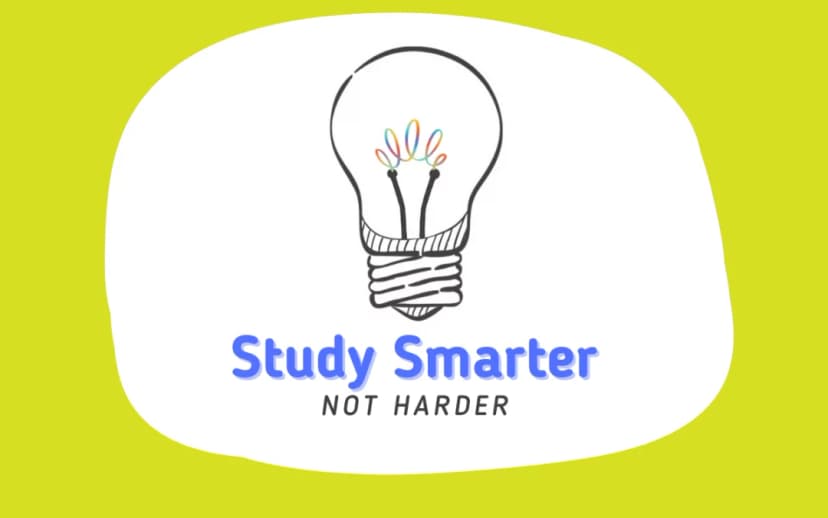Study Smarter, Not Harder
Discover evidence-based techniques to improve your learning efficiency, boost retention, and achieve better results with less stress.

Featured Tips
Our most effective techniques for better studying

The Pomodoro Technique
Break your study time into 25-minute focused intervals with small 5-minute breaks in between. After 4 intervals, take a longer 15-30 minute break.

The Perfect Study Environment
Find a quiet, well-lit space with minimal distractions. Ensure good air flow, comfortable temperature, and ergonomic seating to maintain focus and comfort.
All Study Tips
Browse our complete collection of proven study techniques
The Pomodoro Technique
Break your study time into 25-minute focused intervals with small 5-minute breaks in between. After 4 intervals, take a longer 15-30 minute break.
The Feynman Technique
To truly understand a concept, try explaining it in simple terms as if teaching a child. Identify gaps in your explanation and revisit the material to strengthen your understanding.
Spaced Repetition
Review material at increasing intervals: first a day later, then a few days later, then a week later. This helps transfer information to long-term memory.
The Perfect Study Environment
Find a quiet, well-lit space with minimal distractions. Ensure good air flow, comfortable temperature, and ergonomic seating to maintain focus and comfort.
Active Recall Practice
Instead of simply re-reading your notes, actively test yourself on the material. This forces your brain to retrieve information, strengthening memory connections.
Effective Note-Taking Strategies
Try the Cornell method: divide your page into sections for notes, cues, and summary. This helps organize information and facilitates review later.
The 2-Minute Rule
If a task takes less than 2 minutes to complete, do it immediately instead of scheduling it for later. This prevents small tasks from piling up.
Study Music Recommendations
Consider lo-fi beats, classical music, or nature sounds while studying. Avoid music with lyrics if you're working with language-based tasks.
Weekly Study Plan Template
A balanced approach to organize your week for optimal learning
Monday
Introduce yourself to new concepts
Tuesday
Focus intensely on difficult topics
Wednesday
Revisit Monday's material
Thursday
Apply concepts through problems
Friday
Collaborate with others
Saturday
Tie concepts together
Sunday
Brief review and recharge
Tools for Better Studying
Resources to complement your study sessions
Focus Playlists
Curated music collections designed to enhance concentration and minimize distractions.
Browse playlistsApp Recommendations
Essential productivity and learning apps that can transform your study routine.